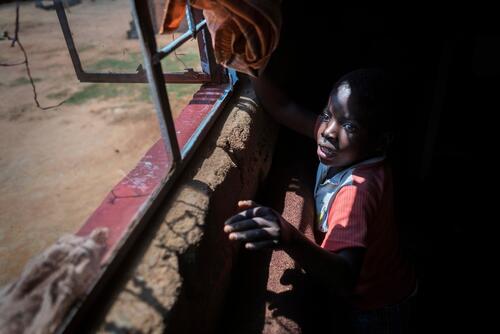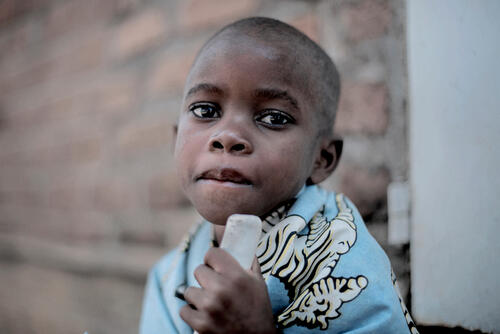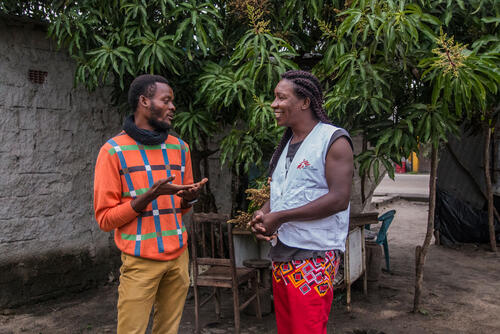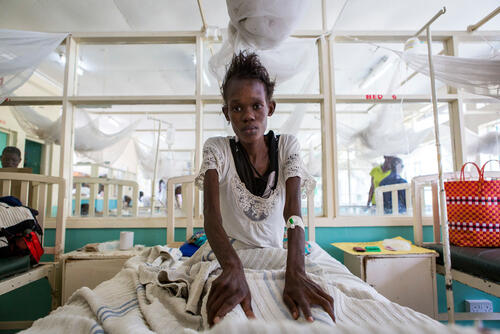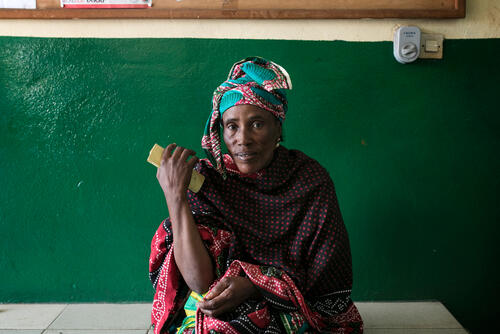Amsterdam/Geneva – As the annual global HIV/AIDS conference gets underway in Amsterdam, Médecins Sans Frontières (MSF) is calling out ViiV Healthcare – a division of US and UK pharmaceutical corporations Pfizer and GlaxoSmithKline, plus Japan’s Shionogi – for preventing children with HIV from getting child-appropriate formulations of a critical HIV medicine, dolutegravir.
The World Health Organization (WHO) now recommends dolutegravir as a preferred treatment option for adults and for children from four weeks to ten years of age, to replace paediatric treatments containing sub-optimal drugs with more side effects. When starting treatment, children need access to the best and most robust medicines possible – which are least likely to result in resistance – given they will likely take HIV medicines for life.
“The nearly two million babies and kids around the world who live with HIV shouldn’t have to settle for inferior treatment when something better exists,” said Dr David Maman, medical coordinator for MSF in Malawi. “It’s outrageous that ViiV is dragging its feet when it comes to getting better treatment for children with HIV.”
Despite ViiV pledging in November 2017 that it would expedite the availability of paediatric dolutegravir formulations where these are most critically needed, and despite repeated appeals from MSF and others, almost 18 months after paediatric formulations of dolutegravir were approved for use by the European Medicines Agency, the corporation has started the registration process in only three sub-Saharan African countriesKenya, Nigeria and South Africa. This leaves the majority of children in developing countries without this improved treatment option. Whereas needed HIV medicines are routinely imported via import waivers in situations where the drugs are not yet registered, ViiV claims it is against its policy to do this. This is unconscionable, especially if governments are prepared to issue such waivers to provide children with this improved treatment option.
Furthermore, ViiV must urgently finish the development of a new dispersible version of the drug for babies and the youngest children with HIV, which is not available anywhere, and complete the dosing studies that are needed to further optimise and simplify treatment for children. It must also honour its commitment to supply its paediatric formulations as needed while generic versions are being developed, including through its recently announced collaboration with Unitaid and the Clinton Health Access Initiative, as this will take several years at any rate.
“ViiV needs to recognise its responsibility as today’s only producer of paediatric versions of the new gold standard in treatment for babies and children with HIV, and move mountains to make sure kids can access this treatment immediately,” said Jessica Burry, HIV pharmacist at MSF’s Access Campaign. “A full four years after ViiV first made dolutegravir available for adults, what we’re seeing is the corporation hiding behind bureaucratic excuses for why they can’t make the drug available to kids who need it. Their excuses are not valid.”
Pricing of the paediatric formulations is also much higher relative to the adult formulations. ViiV sells the adult 50mg dose for approximately US$223 per person per year, while for the 25mg and 10mg paediatric formulations, ViiV charges US$214 and US$115, respectivelyFurther details on ViiV’s ARV pricing can be found at: www.msfaccess.org/stopping-deaths. If a child needs a dose of 35mg, ViiV would charge US$329 per year, over US$100 more than than adults pay – and this does not include the two other drugs required to make up the full treatment combination. Furthermore, generic versions of the adult triple-drug cocktail containing dolutegravir are available for US$75 per person per year. Yet another example of how children with HIV are consistently left behind.



